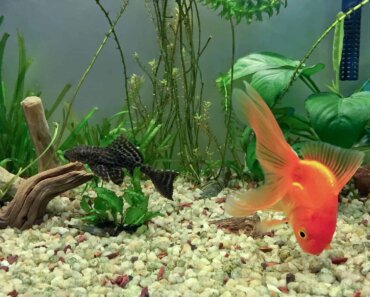Thanks to their sensitive natures, cats are more prone to stress and anxiety than many other animals. From California poppy to valerian, these herbs help calm anxious kitties.
Anyone who has lived with a cat is aware that felines are uniquely sensitive creatures. They seem much more keenly tuned into their environments than we or even our dogs are. The smallest change in a cat’s routine – how the furniture has been rearranged, or who just dropped by for dinner — can result in anxiety. And unlike virtually any other animal, Kitty prefers to operate under her terms only, which raises the anxiety bar even higher, especially when her expectations don’t pan out. Luckily, there are many ways to calm anxiety in cats — including the herbs outlined in this article.
Different herbs for different circumstances
Calmative herbs can be generally described as those that help relieve anxiety and bring about a calmer, more relaxed state of being. However, it’s important to realize that no two calmative herbs are entirely alike.
1. Valerian root (Latin name)
Thanks to the antispasmodic and carminitive activities of its saponin constituents, valerian root is especially well-suited to cases where high anxiety manifests in vomiting. Cats are well known for holding tension in the gut, and for this, ten to 20 drops of a glycerin-based valerian tincture piped directly into the mouth will usually bring fast relief.
 2. Catnip (Nepeta cataria)
2. Catnip (Nepeta cataria)
If the cat does not tolerate valerian, a similar dose of catnip glycerin tincture may do the trick. Don’t worry about Kitty getting looped-out the way he does with his catnip mouse — the euphoric effects of catnip (which are good in their own right) only occur when aromatic nepetalactones from the herb activate the cat’s accessory olfactory system inside her nose. When ingested, catnip does not induce euphoria, but serves as a general calming agent that also helps relieve intestinal gas and bloating, the byproducts of a nervous gut.
3. Lemon balm (Melissa officianlis)
This herb offers similar activities in the gut, and will induce a subtle calming effect. Science suggests lemon balm may also help slow an overactive thyroid — a problem suffered by many cats. In theory, the herb inhibits thyroid-stimulating hormone (TSH) uptake at TSH receptors. However, if you suspect your cat may have thyroid disease, a trip to the veterinarian is warranted, as hyperthyroidism can lead to serious, even life-threatening health problems. Lemon balm may also interfere with certain thyroid drugs.
4. Passion flower (Passiflora incarnata)
The chemicals in passionflower have calming, sleep-inducing, and muscle spasm-relieving effects, but I find it’s best for helping ease the mind during bouts of jealousy, separation anxiety, fear or grieving. Give ten drops of an alcohol-free tincture, by mouth, up to twice daily.
 5. Skullcap (Scutellaria laterifolia)
5. Skullcap (Scutellaria laterifolia)
This is the first herb I turn to for “nervous jitteriness”; situations in which an animal is literally trembling with anxiety, or seems hypersensitive to touch – such as when you touch your cat’s back and her skin crawls, or she jumps. Skullcap is also frequently used as a direct replacement for valerian, which tends to heat up certain individuals. Some of the veterinarians I work with use skullcap to help reduce the intensity and frequency of epileptic seizures. There are many species of skullcap, and some have quite different chemistries, so be sure the product or plant you are using is Scutellaria laterifolia, which is the primary commercial species in North America.
6. California poppy (Eschscholzia californica)
This is among the first herbs to consider when your cat’s anxiety is associated with pain. Unlike whiny humans who deal with pain by popping analgesic or anti-inflammatory pain pills, cats cope with their aches and pains by curling up and going to sleep. Enter California poppy. Unlike its Asian cousin the opium poppy (Papaver somniferum), the California poppy does not contain any opiates, but it does have some very mild opiate-like properties that make it useful for safely and reliably bringing comfort to a pain-agitated feline. Look for an alcohol-free tincture formula made from the entire flowering plant. Use in small frequent doses for the best effects. For Kitty, this equates to 0.25 ml of the tincture, once every two hours until a restful state is established.
Before giving anything new to your cat, including herbs, it’s always a good idea to schedule a veterinary check-up to make sure her stress and anxiety isn’t being caused by a physical problem. It’s also important to consider how her diet may be contributing to her anxiety (see sidebar above). Once any medical and nutritional issues have been addressed, reach for the above herbs and see how effective they can be for calming your stressed-out kitty!




























